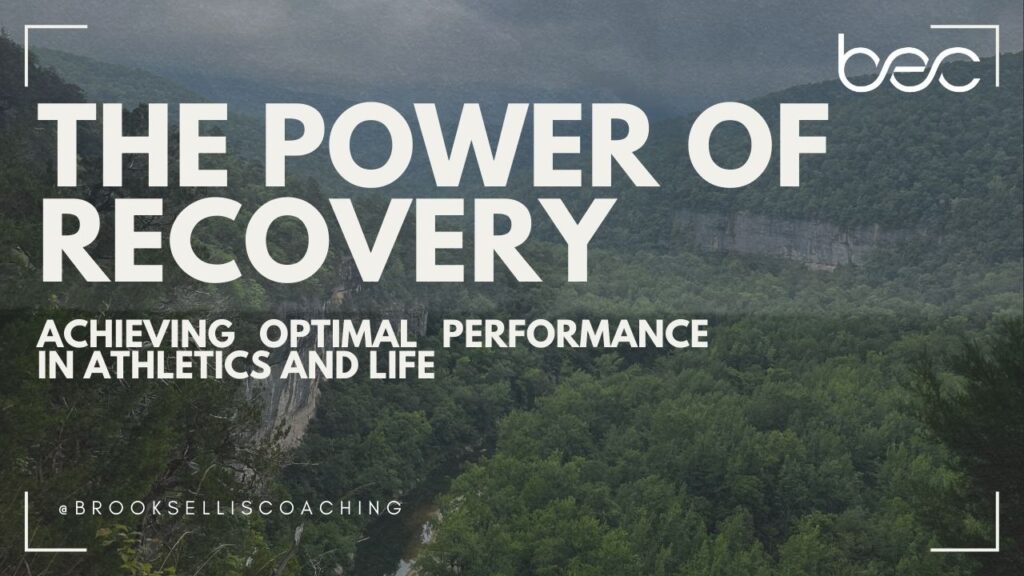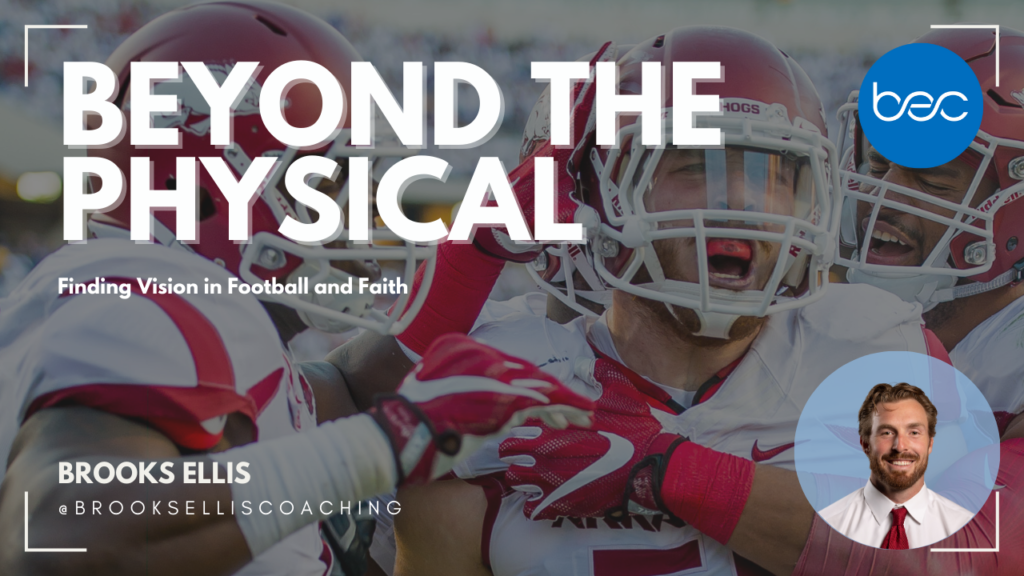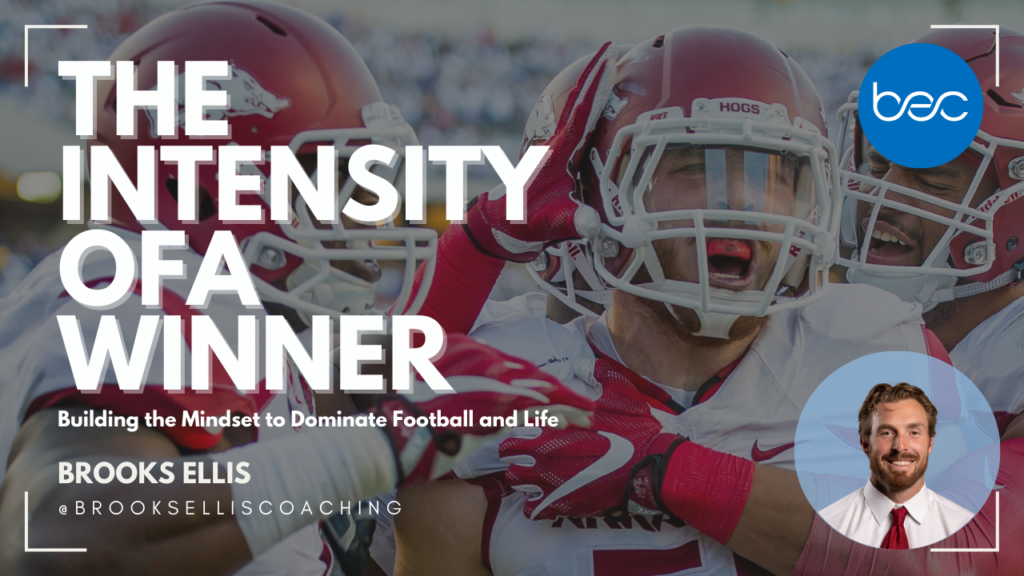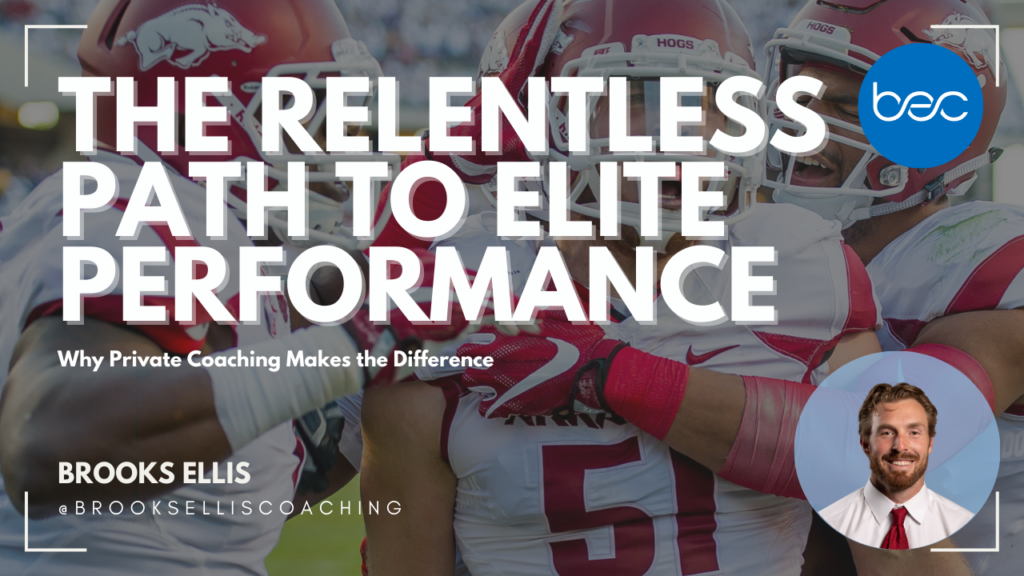The Silent Struggle of Professional Athletes
In a 2019 article, researchers found that 35% of professional athletes have mental health concerns, which include burnout, anxiety, depression, and more (1). Further, 30-40% of athletes are often overtrained and undernourished (2). When an athlete arrives in this state, it leads to a greater risk for injury, poor performance, poor motivation to drive, and an eradication of vigor. These elite athletes are often under the supervision of elite teams of trainers, coaches, and nutritionists, so how is this still happening?
A Personal Journey Through Burnout
Take it from me, a guy who prided myself on being the hardest worker on and off the field. Ever since pee-wee football, I would not let anyone outwork me. The power of my will could not be defeated. If you tried to beat me, I would work harder to defeat you. This work ethic was prized, and it succeeded up to a point. Coupled with ZERO recovery, constant stress, and an amalgamation of various activities, my performance could not keep up.
This problem culminated in my time in New England, where I suffered from numerous chronic injuries, unrelenting and overwhelming anxiety, and horrible performance, landing me a comfy spot back at home when the season started. I worked harder than anyone, so why didn’t it work out?
For some people, recovery is not a problem, as the couch is their best friend. If that’s you, please read another article. This article is specifically for high-achievers who never settle for good enough and always feel like they’re falling behind. If you are a parent who continually presses more sports and training upon your child, thinking that that will be the only way for them to succeed, this article is specifically for you. Listen, I get it. It’s easy to think you need to work harder.
After reading this, I hope you’ll understand recovery, why it is so important, and how to recover for optimal performance.
Before reading, please remember to SHARE this article on X, Instagram, or LinkedIn and tag me in the post if you liked it. Also, leave a review on Google so I can continue bringing you content like this to help you or your child be at your best.
Let’s get started.
What is Recovery?
Understanding the Importance of Recovery
To be better at recovery, you must first understand what it means. To a high-achiever, recovery can sound like something for only those who cannot withstand high training loads. The opposite is the case. Recovery is NOT a sign of defeat or weakness. In reality, it is a sign of wisdom and love.
The body is a temple, a gift from God. Taking care of your body through recovery and stillness is a sign of wisdom. It also means knowing that your goals will not come in a day; they will come in due time.
To understand biology, you must know that all life happens in cycles. You are born and eventually die. You wake up from sleep and return to sleep with the sun (circadian rhythm). You also have an ultradian rhythm, the natural flow of mental energy you experience during the day. A mountain cannot be a mountain without its valleys. Yin and yang. This is the nature of the universe.
Biblical Perspective on Rest
Recovery is also a commandment in the Bible. Exodus 20:8-11 speaks of the sabbath, in which on the 7th day, God literally commands you to rest. Similarly, every seven months, He commands you to rest (Leviticus 23:23), as well as every seven years (Leviticus 25:1:12).
In another verse, Psalm 27:14 says, “Wait for the Lord; be strong, and let your heart take courage; wait for the Lord.” Does David write, “work hard for the Lord, for your work will afford you the gift of eternal life?” No! Wait. Rest. Be still. Recover.
To be at your best, you must match these rhythms. Try going full speed constantly throughout the day throughout the year; it won’t work. You NEED a break.
Recovering by resting the mind and body, filling your body up with nutrition, physical rest, and a change of mental work signals to your body that it can relax and rejuvenate, which will pay you back tenfold.
So, now you know the basis for recovery and what it is. Now, why should you recover?
Why Recovery is so Critical for Optimal Performance
The Consequences of Neglecting Recovery
Again, highlighting what something isn’t is an excellent way to highlight what it is. So what happens if you don’t recover? Well, it can cause burnout, a state of exhaustion caused by excess stress on the mind and body (3).
Chasing a dream of being at the peak of competition that you think will make you happy, you can easily wind up expending all your energy sources and hit a brick wall you knew was in front, and you just refuse to look up.
Just as an alcoholic craves that next drink, so too does a high-performing athlete crave their next competition or workout. Just as a gambling addict marches triumphantly into the casino, hoping this will be the day they rake it in big, make some money, put it all on black, and lose it all, the high-performer cannot separate working hard from over-working.
Exercising is good. Exercising every day and becoming obsessed with our physique or feeling depleted and burned out is not good. Moderation is key. If you don’t, you’ll quickly become discouraged and unmotivated to continue in your sport.
Recovery: The Key to Optimal Performance
Why should you recover, then? To avoid burnout, yes. But most importantly, due to our biology, it’s what makes you feel the best! God built you with specific laws of nature, as emphasized earlier. Surprisingly enough, following those laws makes you feel your best and perform your best! It’s what He wants for you and should be what you want for yourself.
As a coach, I pray that’s what you want for yourself. Otherwise, I’m looking for somebody else to take your spot!
When you recover, your biology is renewed and replenished. Work out the same muscle every day, and it will never grow. Work it out consistently with breaks in between, and you give the muscle time to renew. This is the process of death and rebirth, anabolism and catabolism. Break down to build up. You die to your old self and are reborn in the new. Your mind is restored and given the space to think differently and with more creativity. Your body is refueled and ready to rock and roll.
Recovery is just another term for “optimizing your performance.” If you want to be the very best at what you do, you must recover. There is no alternative option.
Now you know what recovery is and why you should recover, but how do you recover?
How to Recover
Planning and Scheduling Your Recovery
Similar to planning workouts, sporting events, activities, dinner, and anything else in your life, the most critical factor in ensuring optimal recovery is to plan it! Recovery must be done on a daily, weekly, monthly, quarterly, and yearly basis. You plan vacations, and your school plans breaks for you, so why not plan recovery? If you don’t, it will never happen.
When you exercise, make sure you carve out time to warm up and cool down, at least 15-30 minutes each. During the week, incorporate recovery days mid-week and on weekends, where you do nothing but move gently, develop your mobility, and give your willpower a rest from pushing yourself to the limit. Every month, give yourself numerous days to unwind and do something fun that gives you a break from the monotonous grind of athletic workouts. Yearly and quarterly, place it on your calendar to take a physical break and rest. Otherwise, it won’t happen.
Tools to Recover
Here are some of my favorite tools to recover:
- Rumble Roller
- Muscle Track
- Othership App
- Sauna/Cold Tub
- 20-minute walks
- Yoga Nidra
- Chamomile Tea
- Healthy, Whole Foods – Leafy greens, olive oil, avocados, nuts/seeds, and a healthy protein source (pasture-raised chicken, 100% grass-fed beef, wild-caught salmon)
Listening to Your Body’s Signals
Another critical element of rest is hearing the signal. In modern US culture, the fast-paced and ultra-busy culture that pervades existence today, people often cannot hear their signal to rest due to a myriad of distractions. These distractions include hyperstimulants such as caffeine or pharmaceutical attention pills, social media and tech in general, chronic overwork, and last but certainly not least, our desire to keep up with the Joneses and make more money than we need.
That signal is subtle but noticeable, but only if we want to listen. Too often, that voice is drowned out by a much louder voice that we have heard for most of our lives: the voice of Satan, the voice telling us that we’re not working hard enough, not making enough money, or much more simply, not good enough, and that you need cash and more status to make you whole.
I’m here to tell you that you’re good enough already as you are and that the more you try to keep up with this idea that status will provide you with joy and happiness, the further away from joy and happiness you will be. The more you rest and receive what you need to obtain through stillness, the better you will become and the happier you will be.
My Personal Revelation and Transformation
How do I know that? Because I’ve been through this myself. Don’t be like me, who thought I could do it independently due to my power of will. I had the will, trust me. Daily, I wanted to prove to everyone around me that I could outwork and outperform anybody else.
I climbed the ladder to the NFL, thinking that the harder I worked, the more loved I would be and the happier I would feel. Instead, I was left broken, alone, and miserable for many, many years, even after my career ended. It wasn’t until I realized the desire to please others and outwork everyone was causing this horribly empty and devastating feeling inside. I learned to let go of the chase and find rest and stillness. Along the way, I found infinite, superabounding joy.
How does this relate to recovery and performance? Well, it’s a spiritual issue. We must prize our optimal selves over idolizing this short-term feeling that we accomplished something today. It’s a marathon, not a sprint, and to run a marathon, you must pace yourself, or you’ll hit a wall much sooner than you’d like, and you’ll end up much further behind than you could’ve ever imagined. However, even if this becomes your story, what you’ll learn will be your secret weapon as long as you strive to be your best.
Conclusion: Embracing a Culture of Rest
My prayer is that we all become a culture of rest so that our ultimate joy is found not in external satisfactions but in wisdom gained during our recovery time. We may become our GREATEST selves, the best version of the person God created us to be, instead of trying to do it on our own, believing we know better.
Something God is helping me learn right now that I’m stubbornly refusing to repent against is my incessant drive to do everything at once: run a business, train for a marathon, start a new job, push myself over the limit, and crave the feeling of exercising and working.
I’m acknowledging that I’m avoiding my rest periods and craving that initial endorphin rush I receive when I exercise. It’s a work in progress, but after years of work, I’m finally seeing how much better life is and how much better I feel when I take it slow and take time to recover.
Don’t learn the hard way. Learn from my mistakes. Incorporate recovery into your routine and see what happens to your life overall.
Listen to what David says again in Psalms. He writes, “He makes me lie down in green pastures, He leads me beside quiet waters, He refreshes my soul. He guides me along the right paths for his name’s sake.” (Psalms 23:2-3)
I recommend reading that verse at least 90 times to let it sink in.
We rest, and we wait, and we listen, and this leads us to His ultimate glory, our ultimate joy.
Writing this blog meant as much for me as it did for you.







